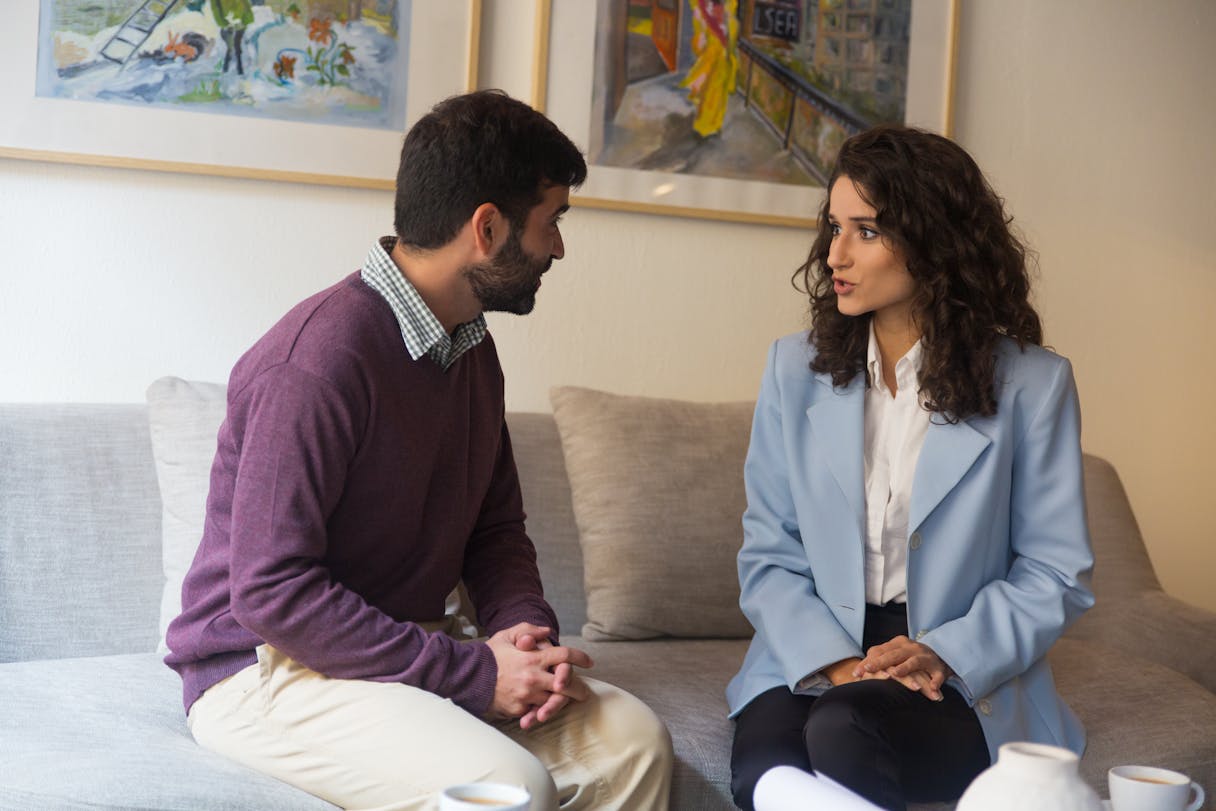How Couples Therapy Benefits Every Relationship Stage


Each chapter of your relationship will unfold with unique joys and challenges, but regardless of the stage you find yourselves in, couples therapy can provide the support you and your partner need to remain happy, loving, and committed. From becoming exclusive to your golden year, let’s explore the different stages of a relationship and discover how the help of a skilled therapist can help it to continually blossom.
Committed/exclusive relationship
In the early stages of commitment, couples therapy can provide a solid foundation for effective communication, boundary-setting, and building trust. These tools lay the foundation for a strong, lasting bond so you can overcome uncertainties.
Couples therapy becomes your communication coach, equipping you with skills for:
- Develop healthy communication skills that become the cornerstone of your future journey.
- Expressing yourselves clearly and actively listening to understand each other's needs and perspectives.
- Setting healthy boundaries that respect individual needs while prompting closeness.
- Building trust through open and honest communication for greater emotional security.
Engagement/shared future
As you envision your happily ever after together, couples therapy acts as a neutral party that can bring objective insights. You'll openly discuss sensitive topics like finances, family dynamics, and career goals, ensuring clarity and understanding before embarking on the next phase of your relationship.
Couples therapy provides a safe space to:
- Engage in open dialogue about sensitive topics, benefiting from a non-judgmental setting to foster understanding and clarity.
- Gain insights from a skilled professional, equipping you with valuable expertise and guidance for managing disagreements constructively.
- Plan for your future by proactively addressing potential challenges, ensuring shared goals and clear communication as you enter your next chapter together.
- Strengthen your bond through collaborative decision-making, fostering a deeper connection and mutual understanding in your relationship.
Married life/long-term relationship
Adjusting to married life (whether official or not) can bring challenges, and the initial spark may sometimes flicker. Couples therapy empowers you to overcome inevitable challenges while still maintaining a fulfilling and vibrant connection.
Couples therapy serves as a coach, helping you:
- Discover each other's emotional needs and perspectives, promoting empathy and understanding.
- Develop healthy conflict-resolution skills to address disagreements constructively, maintaining a strong emotional connection.
- Adapt to changing roles and responsibilities with flexibility and support, ensuring your relationship grows alongside you.
- Strengthen your bond as a couple through proactive communication and understanding.
Parenthood
The arrival of children, while rewarding, can strain even the strongest relationships. Couples therapy provides a space to address challenges like balancing responsibilities, managing stress, and maintaining intimacy. This support system allows you to prioritize your relationship and nurture a strong foundation for your growing family.
Couples therapy becomes your haven, empowering you to:
- Navigate the emotional roller coaster of parenthood with healthy coping mechanisms for stress and fatigue.
- Prioritize both individual needs and family unity through effective communication and support.
- Build a strong foundation for your growing family by fostering open communication and emotional connection.
- Maintain a strong and loving relationship that sets a positive example for your children.
Empty Nest
As children spread their wings, couples often grapple with feelings of loss and a shifting identity. It’s not always easy adjusting to a quieter household and coexisting with a partner, where your days don’t include the daily responsibilities of parenting.
Couples therapy can be your bridge to a vibrant future, helping you:
- Rediscover yourselves as a couple through shared adventures, exploring new passions like travel, hobbies, or creative pursuits.
- Explore individual growth opportunities while strengthening your bond as a team.
- Weather the emotional transitions with support and understanding.
- Embrace change with confidence and optimism, building a future filled with new adventures and shared dreams.
Retirement
Saying goodbye to full-time work and hello to retirement presents opportunities and challenges to relationships. You have to forge an identity that doesn’t involve work or a career, while also spending a lot more time around your significant other.
Couples therapy offers invaluable support in helping you:
- Adjust to newfound freedom and leisure time so you can navigate changes in routine and roles with grace and flexibility.
- Deepen your emotional intimacy, learning to communicate effectively, express appreciation, and overcome challenges with empathy and understanding.
- Sustain a vibrant relationship, ensuring that you continue to prioritize your connection amidst the changes and uncertainties of retirement.
- Find renewed purpose and excitement in your relationship, infusing your golden years with love, laughter, and a sense of adventure.
Get support for each stage with Cerebral
At every stage of your relationship journey, Cerebral provides expert support to nurture a happy and thriving partnership. With our seasoned and empathetic therapists, you'll gain invaluable tools, resources, and personalized care to reignite and sustain your love for each other. Sign up today and start meeting a therapist online, from the comfort of your home. Get started.
Image by yanalya on Freepik

Relationship Anxiety: Understand the Signs and Ways to Cope

What To Do If You’re Feeling Underappreciated by Your Partner

How to Talk to Your Partner About Couples Therapy

Call 911 if you’re having a
mental health emergency
Text Home to 741-741 if you're in emotional
distress and need immediate support
Call or text 988 Suicide &
Crisis Lifeline. Chat service
is available at 988lifeline.org.